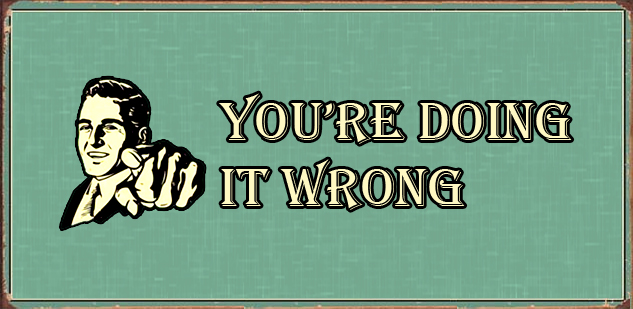(April 2015)
 Philadelphia: you are going to vote the wrong way for mayor.
Philadelphia: you are going to vote the wrong way for mayor.
No matter how informed you are about the issues and no matter what decision-making strategy you employ to select your favored candidate, you will make the wrong choice. It's not about the individual candidates, their merits, or lack of merits. It's about the way we elect a mayor in Philadelphia. We do it wrong and our city suffers because we refuse to do it better.
To get elected in Philadelphia, one need not garner the majority of votes cast. One need only secure a plurality -- just one more vote than any of your opponents -- to win. A majority of voters may have voted against you, but if you have the highest vote total, you win.
Perhaps more important, because Philadelphia is currently dominated by one political party, the true election for Mayor will occur during the May Primary Election when turnout is lower than the General Election in November and when only voters from a single party will have a choice. Thus, it is really just a plurality of voters in the Democratic Party that elects our Mayor.
Choose Or Lose
After our next Mayor is inaugurated in January 2016, the 1.5 million people of Philadelphia will be governed by a candidate who received a little more than 100,000 votes in the Democratic Primary -- a candidate who was NOT the first choice of nearly two-thirds of Primary voters.
That doesn't just sound bad; it affects how our city is governed. Candidates who have to win approval of a majority of all voters must APPEAL to the majority of all voters. Once elected, candidates who have the backing of a majority of voters have a mandate to govern and political popularity and power to get things done. Candidates who only secure a plurality of votes from their respective parties have less of an ability to claim any kind of mandate and have much less ability to use their bully pulpit to promote positive change.
Of course HOW one is elected is not the only predictor of future governmental or political success. But I'll place my bets for a successful term in office on somebody who truly had to demonstrate mass appeal and a vision that inspired more than half of the electorate to win, as opposed to somebody who managed to win 35 percent of the vote in a crowded Democratic primary.
Choose Wisely
Election systems in other cities force mayoral wannabes to reach out to more than a modest slice of the electorate. Cities like New York use a two-round system, which requires candidates to win at least 40 percent of the vote or face a second (runoff) election against the second-place finisher. Cities like San Francisco employ an instant-runoff system where voters rank candidates in order of preference on their ballots. If one candidate wins more than half of votes cast, that candidate wins. If not, the candidate with the fewest votes is eliminated; ballots assigned to the eliminated candidate are then added to the totals of remaining candidates based on who is ranked next on each eliminated ballot, with the process continuing until one candidate has more than half of the votes. In cities like Chicago, candidates run in nonpartisan, open elections where candidates from all political parties compete for support of all registered voters regardless of party affiliation.
How would elections be different if mayoral aspirants were not just focused on winning a bit more than a third of the Democratic Primary vote? What would happen if candidates and their campaigns understood that they needed a majority of votes to win?
Perhaps elections would be less about party power brokers and more about connecting with individual voters; less about political relationships and more about vision, policy, and message; and less about segmenting the vote and more about growing the electorate.
The Choice Is Yours
A mayor elected by a true majority of Philadelphia voters would have the popular backing to promote positive change in City Hall. Our current system of electing a mayor is unlikely to create such a dynamic.
Until we change HOW we elect our mayor, WHOM we elect may be the wrong choice -- no matter WHO that choice is.
We may be voting the wrong way, but -- please -- exercise your right to vote on May 19!
 Philadelphia: you are going to vote the wrong way for mayor.
Philadelphia: you are going to vote the wrong way for mayor. 